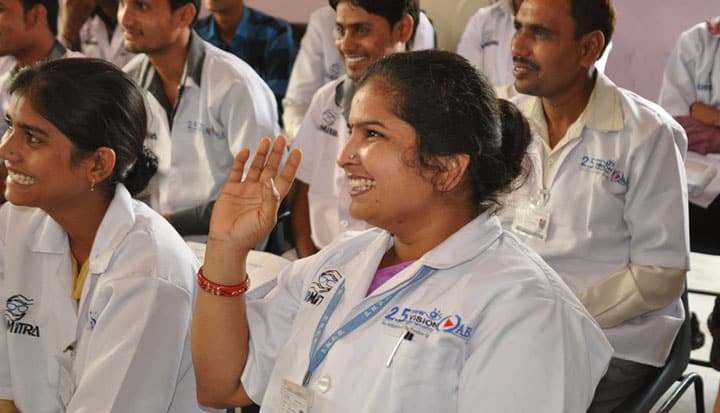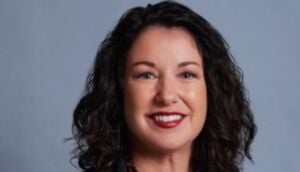When the UN sustainable development goals (SDGs) were formally adopted last year, many in the sustainability community saw this as a moment of triumph. The seventeen goals are not only ambitious but also universal, and the private sector worked hand in hand with government and academics in their development. Yet sceptics have wondered whether the goals are too aspirational, and some global leaders have raised concerns about the sheer number of goals. Can the private sector rise to the occasion? We believe that it can.
Seeing the bigger picture
One important thing to remember is that the SDGs are not a checklist, but a holistic framework, and focusing on certain global issues can advance multiple SDGs. Take, for example, the issue of vision care. Good vision is a fundamental enabler for all the SDGs – it is essential for people everywhere to see clearly in order to undertake the individual and collective actions necessary to reach the 2030 ambition. Yet, uncorrected poor vision is the world’s largest disability, affecting 2.5 billion people worldwide. Its impact on society is largely unrecognised, even when in addition to affecting quality of life, there are real and tangible costs associated with impaired vision.
These costs are felt keenly in India where 550 million people suffer from uncorrected poor vision. The disability costs the country $37 billion in lost productivity each year, and yet there’s just one qualified optometrist for every 25,000 people and a drastic shortage of eye care professionals in rural areas. Added to that, India has a significantly young population – 65% under 35 – and an urgent need to build skills and create jobs to combat high youth unemployment and slow the migration of young people to cities in search of work.
Complex challenges, simple solutions
So what if correcting the vision of people living in remote villages could also create employment, boost productivity and rejuvenate local economies? That is the premise behind Essilor’s Eye Mitra inclusive business initiative.
Eye Mitra (meaning friend of the eyes in Sanskrit) addresses the three issues of poor vision, lack of skills and unemployment. The program recruits and trains under-employed youth to set up a business doing vision screening and dispensing eyeglasses, bringing locally affordable eye care to rural and semi-urban communities. Pilots were set up in Uttar Pradesh and Rajasthan in 2013 with skills and development partners. By the end of 2015, there were over 1,000 working Eye Mitra who have provided vision care to over 150,000 people in their local communities. The ultimate goal is to train and help 10,000 Eye Mitra set up in business by 2020, of whom one third will be women.
Benefits beyond vision
The Eye Mitra business model acts on several levels to impact society in ways that correlate directly to the SDGs. Beyond the provision of vision care, it enables young people to gain skills and qualifications to earn a livelihood locally, avoiding further urban migration. By creating jobs, it alleviates poverty and stimulates the local economy. The program also focuses on gender equality and actively encourages women in its recruitment processes.
From a single mission, impact can ripple out from individuals to their communities, and to society at large, helping to influence much needed policy change. Eye Mitra is far from an isolated example. The great work Unilever does with sanitation aims to ensure improved sanitation for 25 million, whilst Danone continually innovates to improve access to nutritious food. But as a result, these commitments will also improve global health – and healthy children are better able to attend school and grow into productive adults. These virtuous circles are key to truly sustainable development, and business has a responsibility to tackle these development issues that align so clearly with our expertise.
Join the Conversation
Join Essilor’s Chief Corporate Mission Officer, Jayanth Bhuvaraghan, and Vice Dean for Education at Johns Hopkins Carey Business School, Professor Kevin Frick, along with the Founder of Business Fights Poverty, Zahid Torres-Rahman, and TriplePundit for a conversation about the economic and social benefits of vision correction on January 27 at 8am PST / 11am EST / 4pm GMT / 9.30pm IST at #SeeChange.
In the meantime, you can learn more about Essilor’s work to eradicate poor vision at www.essilorseechange.com and by following @SeeChange4all.
Essilor is the world leader in ophthalmic optics with a presence in 100 countries. The Group designs, manufactures and markets an extensive range of vision care solutions that help to correct, protect and prevent risks to the visual health of around one billion people worldwide.










